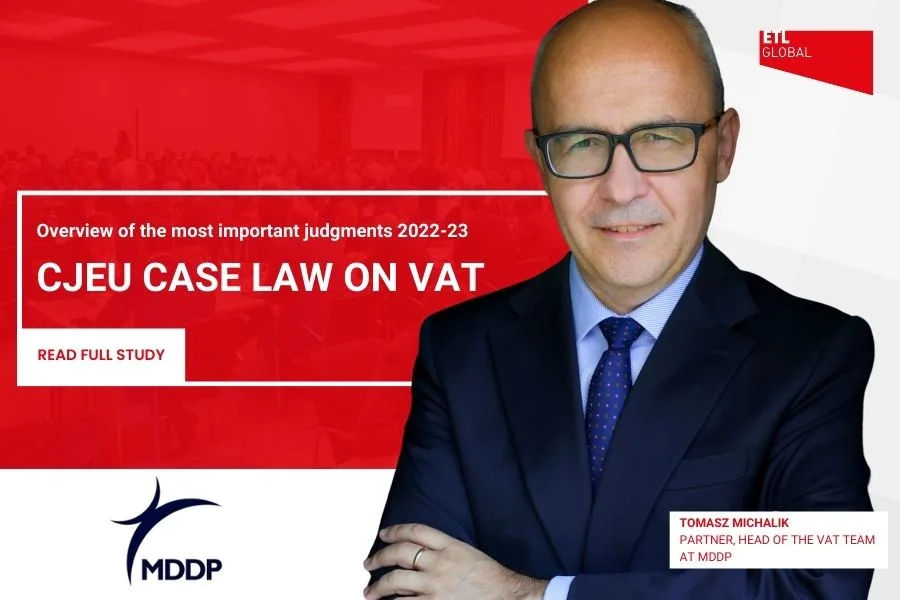In European Union Value Added Tax (EU VAT), the focus of interest in cases of doubt consistently centers on the rulings of the European Court of Justice (CJEU). This is underlined by the recently compiled study, CJEU CASE LAW ON VAT: Overview of the most important judgments 2022-23, crafted by ETL GLOBAL Member in Poland, MDDP.
The CJEU plays a crucial role in ensuring a unified interpretation of EU law and compelling Member States to adhere to these standards within the framework of the EU VAT Directive. VAT, as a harmonised tax, requires consistency in interpretation while allowing for localised variations in non-essential aspects.
The study underscores the CJEU’s role in guiding Member States within the confines of EU regulations, often adopting a creative approach in interpreting Directive 2006/112. This directive, pivotal to EU VAT, undergoes analysis through the lens of fundamental principles and values, incorporating insights from the EU Charter of Fundamental Rights.
Illustrating the court’s influence, the study highlights the CJEU’s involvement in shaping key constructs within EU VAT, including composite supplies, fixed establishments, and the VAT abuse framework. It stresses the importance of monitoring and comprehending these judicial decisions.
Amidst an evolving EU VAT case law landscape, the study encourages readers to engage in discussions on recent CJEU rulings, particularly crucial for entrepreneurs. Beyond the judgments, it advocates for an examination from the perspectives of Advocates General, providing a comprehensive understanding of the dynamic EU VAT system. In this regard, the study promises to be a valuable resource offering insights into the foundations, applications, and interpretations that delineate EU VAT.
Access the full CJEU CASE LAW ON VAT report by MDDP for further insights.






